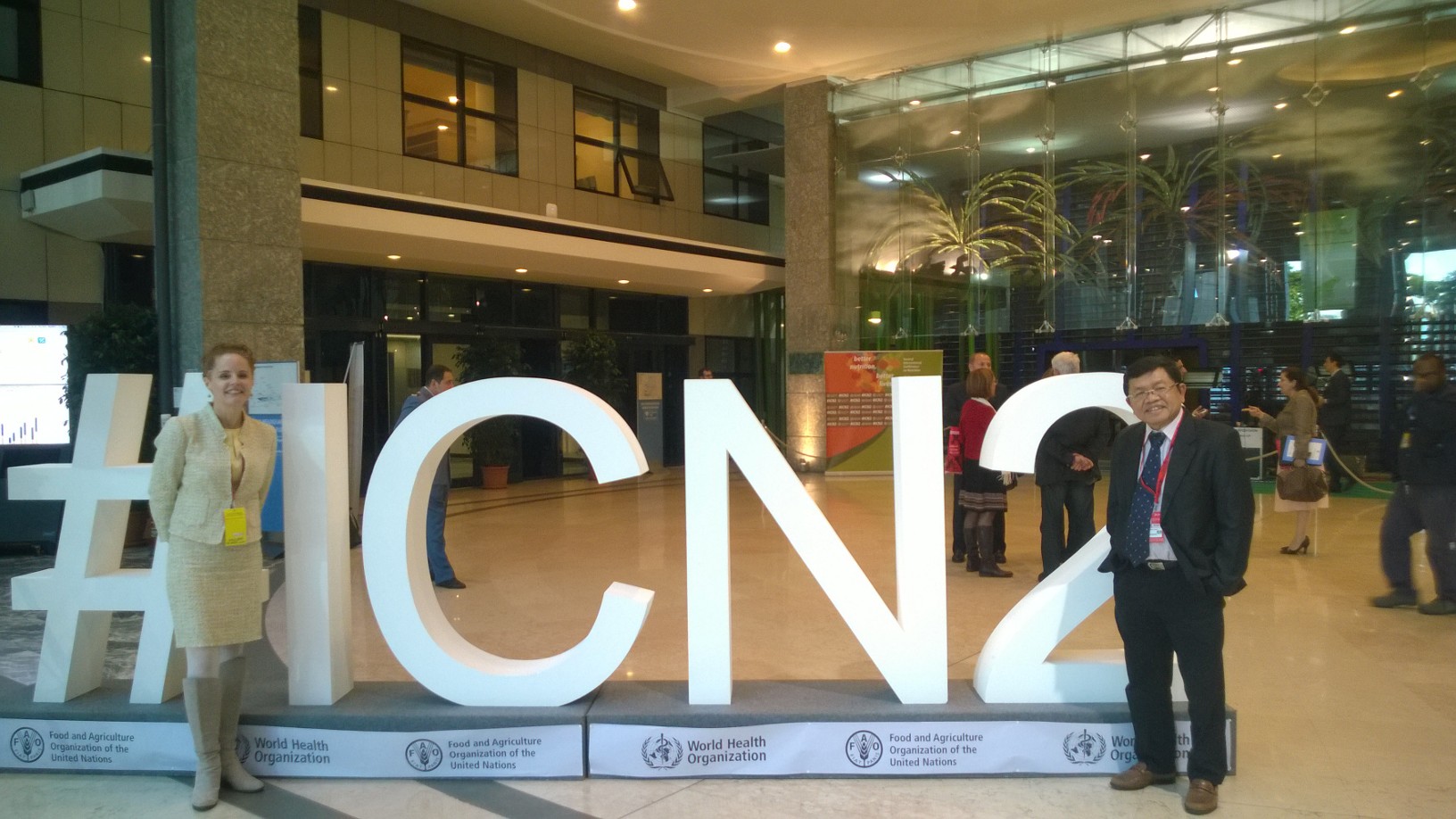
MCC's Dr. Michelle Inkley and MCA-Indonesia's Dr. Minarto attended the Second International Conference on Nutrition.

Last month, I had the immense honor of representing the U.S. Government as a member of the delegation to the United Nations Second International Conference on Nutrition (ICN2) and the pre-conference Scaling Up Nutrition (SUN) Global Gathering in Rome. To me, it’s quite telling that 22 years have passed since the First International Conference on Nutrition. As a result of the lack of global attention, malnutrition—which includes undernutrition, overnutrition and micronutrient deficiencies— is at crisis levels. The paradox of nutrition in our world is that there is too much for some and too little for many; there is enough food for everyone and yet not everyone can eat.
Nearly half of the world’s population suffers from malnutrition, which costs an estimated $3.5 trillion annually. No country is unaffected. Take, for example, a common consequence of malnutrition: Stunted growth (defined as being more than two standard deviations below the median population height) causes devastating and life-long physical as well as cognitive consequences. Recognizing that an estimated 162 million children throughout the world are stunted, this loss of productivity is astounding and, in a world of plenty, is completely unacceptable.
For MCC, with our mission on poverty reduction through economic growth, investments in nutrition fit perfectly within our model because nutrition is a key driver, and according to some, the key driver of economic growth. Every dollar invested in nutrition interventions results in an average $16 return.
And so the world descended upon Rome last month to give light and voice to the invisible and often voiceless crisis of malnutrition with its myriad overwhelming consequences on individual lives and worldwide economic productivity. The more than 2,200 participants representing 178 countries—including the Pope, the King of Lesotho, the Queen of Spain, the Princess of Spain, the First Lady of Peru, the Vice President of Tanzania, 85 ministers, 23 vice ministers, and many other distinguished and passionate advocates—gathered to collectively communicate that inaction in nutrition is no longer acceptable and to establish the Rome Declaration and Plan of Action.
According to Jeffrey Sachs, the renowned development scholar and conference participant, less than 1 percent of development funding goes to nutrition, even though nutrition is the underlying cause of all health and development problems—but, of course, that’s part of the problem; it’s been underlying. At the conference, Sachs further stated that “the interconnectedness of the nutrition sector is absolutely profound.” As a result, hunger and malnutrition cannot be addressed in isolation but require a multi-sector approach and a comprehensive framework anchored in action and accountability.
The critical importance of creating an enabling policy environment across ministries (health, water, sanitation, hygiene, agriculture, education, trade) and building capacity, governance, leadership, and ownership at all levels cannot be overstated. Nor should one overstate the importance of action and involvement of all actors, including the private sector—those who produce the food and nutrition-associated products consumed by the world—as well as civil society. We must be inclusive and empowering. We must include women and the most vulnerable. We must use evidence and be results oriented. We must work in a multi-sector setting and not isolate nutrition into sector categories.
And so the table is set for a Decade of Nutrition. Look to see nutrition as a key element of the Sustainable Development Goals and the Post-2015 Framework for Action. The U.S. Government Inter-agency Nutrition Working Group, together with mirrored groups throughout the world, have been hard at work for more than a year to make the inclusion of nutrition a reality.
Werner Schultnick, Director of Nutrition from UNICEF, summed up the conference proceedings eloquently when he said, “By working on nutrition, we can actually tackle poverty.”

